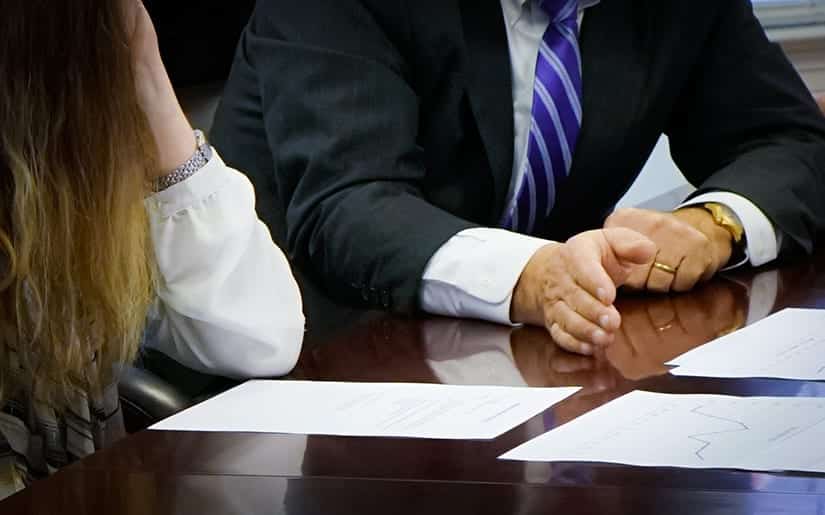Personal Injury Lawyer?
Do you know the next steps to take after you’ve been injured and sought medical treatment? Is a Personal Injury Lawyer right for you? Will your case need to go to court? We’ve gathered some frequently asked questions to help guide your next steps after an injury.

Being a victim of a personal injury can be a very scary time. You may experience physical and emotional pain, time out of work, and a pile of medical bills. With so much to deal with, your next steps may not be clear. We have gathered some frequently asked questions that we feel will help you make some important decisions while trying to recover from your injury.
Every case is unique and not every case requires legal representation to reach a fair result. Sometimes, during an initial consultation we might suggest that the client attempt to settle the case on their own, rather than reducing their potential settlement by hiring an attorney. Many accident victims are unfamiliar with the process of settling a personal injury claim and they simply need some advice on how the system works and how to present the case before managing it on their own. And we recognize that not every potential case is one that should move forward. If we think a case will be impossible or unlikely to prove, we will tell you so. We are not helping ourselves — or you! — by taking a meritless case.
Do I have a personal injury case?
Every potentially viable personal injury case involves another person’s negligence. And every negligence case requires five elements: duty, breach, cause, proximate cause, and damages. If someone negligently causes damage to your vehicle and you are not injured, you do not have all the elements necessary to bring a personal injury claim. The fact that someone acted irresponsibly and you could have been injured is not enough to bring a claim. Virginia – like every state – has its own set of laws governing negligence. For example, in Virginia, the law of contributory negligence bars recovery by an injured person if it can successfully be argued that the injured person was even slightly at fault in causing their injuries. Whether or not you have a viable personal injury case will depend on the unique circumstances of your case.

What is the process to hire Burnett & Williams to represent me?
We have an initial meeting with every client where we go over the basic information of your case and make an initial decision of whether or not you need an attorney. If we believe your case has merit, and our firm is the best fit for you, we will send an Engagement Letter, which details the arrangement of hiring our firm. We allow 14 days for you to consider your options before returning the Engagement Letter to us.
How is the lawyer paid?
Our firm, like most personal injury firms, works on a contingency basis. That means we don’t earn a fee unless we get money for you. Our fees are based on a percentage of the amount recovered. While our fees are contingent, the costs associated with the case are the client’s responsibility regardless of the outcome, though many times we will advance these expenses and deduct them from the award. Those costs include postage, copying, filing fees, serving subpoenas, depositions, and expert witness fees. Costs vary depending on the complexity of the case. Medical malpractice cases, for example, often require expert testimony, and thus can be far more expensive than an automobile accident case.
What is the timeframe in which I can file a suit?
With limited exceptions, persons over the age of 18 must file their lawsuit within 2 years of the incident date to protect the statute of limitations. The statute of limitations, however, is different for minors. Because all cases are subject to time restrictions, it is always best practice to contact a personal injury attorney as soon as possible after being injured.
What happens after I hire a law firm?
Once your case has been evaluated and a decision is made to proceed, our team will gather all the information needed to either settle the case or take it to court.
When you hire an attorney, the insurance adjuster is no longer allowed to contact you directly. We know that dealing with adjusters can be a hassle, especially when you are trying to get your life back together after an accident.
If you are still receiving medical treatment for your injury, we will postpone attempting to settle your case until your treatment is complete, or you reach “maximum medical improvement.” In fact, except in limited circumstances, an insurance company will not settle your case until you have completed all medical treatment.
It is often in our clients’ best interests to attempt to settle their case without filing a lawsuit. However, we prepare every case thoroughly, so that if we need to go to trial, we are fully prepared. If an insurance company decides to deny a claim, we may have to file a lawsuit in order to continue settlement discussions. Certain insurance companies are more likely to require suit to be filed before making a meaningful settlement offer.
Even if suit has been filed in your case, it can settle any time before the trial date.
If you think you may have a case and would like to speak with one of our experts, contact us today about the unique circumstances of your case.
Burnett & Williams Personal Injury Lawyers are experienced with all personal injuries. If you’ve been hurt in an accident and need representation or advice, call us for a free consultation. (703) 777-1650, or contact us here on the web.